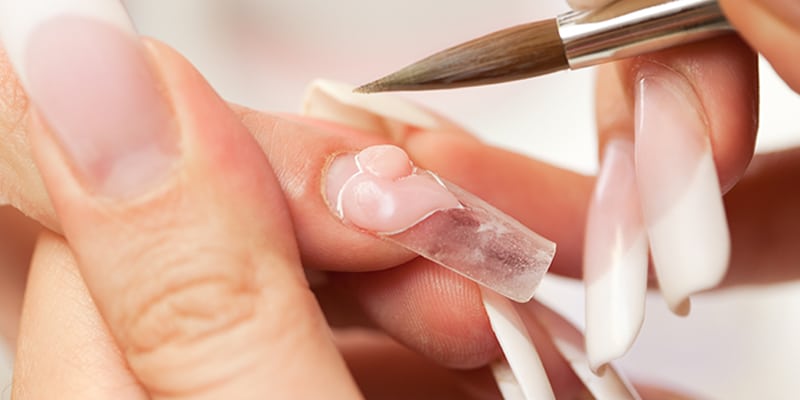Nail Technicians: A Growing Career Choice
Nail technicians, also known as nail specialists, have seen a surge in demand in recent years as households increase their spending on beauty treatments. Many individuals now have their nails done multiple times a month. As a result, nail technicians are consistently in demand, making it an ideal profession for those seeking either a full-time role or an additional source of income.
What Is a Nail Technician?
A nail technician provides a range of treatments such as manicures, pedicures, and other services tailored to a client’s nail care needs and personal preferences. Many nail technicians are self-employed, while others work in salons, spas, barbershops, or dedicated nail bars.
They are responsible for grooming, shaping, and painting clients’ fingernails and toenails, as well as maintaining the health and appearance of the surrounding skin. A good understanding of nail anatomy is essential to ensure treatments are safe and effective.
Nail technicians may also apply and design acrylic and gel nails, shape cuticles, remove calluses and dead skin, take off shellac polish, and even offer hand, foot, arm, or leg massages. You can find a full list of their duties in the next section.
Typical Responsibilities of a Nail Technician
Examining clients’ hands and feet for any signs of nail or skin issues
Discussing the client’s preferences and recommending suitable treatments
Providing manicures and pedicures to shape nails, soften skin, and enhance overall appearance
Massaging hands, forearms, feet, or lower legs to relax the client and improve circulation
Removing old nail polish or extensions
Cleaning and caring for cuticles and surrounding skin
Applying a range of nail enhancements and finishes
Do You Need Qualifications?
Although formal qualifications aren’t legally required to become a nail technician in the UK, having some basic training is strongly advised. You will also need professional insurance to legally offer treatments to clients.
Gaining work experience and building a portfolio can help attract clients or increase your chances of employment in a salon or spa. Formal qualifications in specific treatments can also demonstrate your skill set to potential employers.
It’s worth noting that success as a nail technician takes dedication and effort – but the rewards can be well worth it.
How Much Can a Nail Technician Earn?
Income as a nail technician can vary widely depending on your place of work and whether you’re employed or self-employed. Freelancers can set their own rates, though some salons require chair rental or offer commission-based pay.
According to the National Careers Service, entry-level salaries start at around £15,500 per year, with experienced technicians earning up to £25,000. Freelance rates typically range between £20 and £35 per treatment.
When setting your prices, remember to factor in product costs, insurance, and—if you’re mobile—travel expenses.
Specialist Nail Technician Courses
The more specialised your skill set, the more services you can offer—something highly desirable in salons and spas. While you don’t need to master every treatment, specialising in specific techniques can help you carve out a niche.
Popular options include:
Acrylic nails
Gel extensions
Gel polish
Nail art with gel polish
Manicures
Pedicures
What to Expect from the Job
One of the most appealing aspects of working as a nail technician is the flexibility. If you’re self-employed or freelance, you can choose your own hours and work around your lifestyle.
Salon-based roles tend to have fixed hours, often including evenings and weekends—particularly Saturdays, which are typically the busiest. Some salons operate a chair rental model, where you’ll pay a fee to use their space and retain a percentage of the client’s payment.
With the right marketing and a loyal client base, this career can be both rewarding and highly adaptable.
Can I Become a Qualified Nail Technician Through Distance Learning?
Absolutely! Many people assume they must attend college in person to qualify, but distance learning offers a flexible alternative.
Our online nail courses allow you to gain a recognised qualification and professional insurance without the need for a practical attendance day. You can submit evidence of your practical work online for assessment, making it ideal for those looking to retrain or study alongside existing commitments.
Great courses that you can do in you're own time. Includes booklet and really clear videos to help you pass with ease and learn new skills
I decided to sign up to complete my gel nail courses through next step due to a friend recommending it! I would not look back! Everything you need to get started is all available to you when you sign up, endless workbooks, step by step guides and videos! The team are also so incredibly helpful
I have really enjoyed both my lash lift and dermaplaning courses. They gave plenty of information and the video guidance is really easy to follow. There is always online support through the group and through Next Step Beauty






